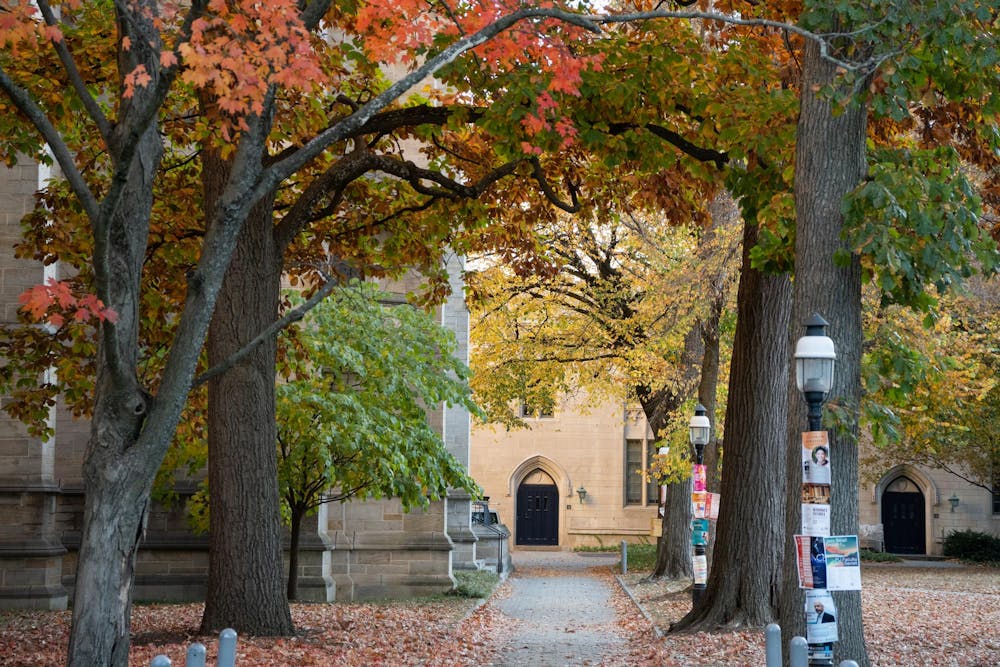In his 2017 book “On Tyranny,” an analysis of America’s anti-democratic shift under Trump, Yale historian Timothy Snyder implores his audience, “Do not obey in advance.” “Most of the power of authoritarianism is freely given,” he writes, arguing that those who adjust their behavior to fit the demands of an oppressive regime are “teaching power what it can do.”
But this week, Snyder and two other Yale professors, Marci Shore and Jason Stanley, announced that they are leaving Yale and joining the University of Toronto’s faculty. While Snyder and Shore, a married couple, attributed their departure to personal reasons, they accepted the positions at Toronto after the November presidential election. And Stanley said that his decision to leave Yale is “entirely because of the political climate of the United States.”
By taking positions at a Canadian university, these professors contradicted Snyder’s memorable directive. They are teaching power what it can do: intimidate fierce crusaders for the free pursuit of knowledge into leaving their institutions and their country. In essence, Snyder, Shore, and Stanley — the very “enemy” professors that the Trump administration wants to purge — obeyed in advance.
Their departure misleadingly signals that universities are no longer safe for scholars who reject Trumpian orthodoxy. But the drastic nature of this action makes this a self-fulfilling prophecy. Timothy Synder is emblematic of the parts of Yale that Trump wants to destroy. In this catastrophic moment for higher education, leading public intellectuals at Princeton and our peer institutions have a moral obligation not to turn their backs on American universities.
The Trump administration has been transparent about its intention to dismantle the university as we know it. Christopher Rufo, a conservative activist and intellectual architect of the administration’s crusade against higher education, admitted that thrusting universities into “existential terror” is the goal. In this climate, no member of a university community is immune from threats to their free intellectual exploration or their livelihood.
But tenured public intellectuals are the most insulated from the Trump administration’s political persecution, buoyed by the dual cushion of tenure and their public stature. It is extremely difficult to fire a tenured professor. Even as universities confront staggering federal funding cuts, the jobs of superstars like Snyder, Shore, and Stanley will be the last on the chopping block.
They also enjoy broad latitude afforded to few other members of a university community. They’re safer than University presidents, who have been gratuitously scrutinized and forced to resign after right-wing mega-donors launched an ideologically motivated pressure campaign. Unlike grad students facing hiring freezes, they don’t need to worry about where they will work next year. Unlike international students, they don’t need to fear they’ll be deported for First Amendment-protected expression of their political views. Superstar professors have the privilege of leaving voluntarily.
Even if these intellectuals lost their professorships, their livelihoods remain secure because there is a massive public appetite for their insights. Snyder’s “On Tyranny” has sold almost half a million copies. Princeton professors (and trenchant Trump critics) Eddie Glaude and Julian Zelizer are frequent contributors on MSNBC’s “Morning Joe” and CNN, respectively. These big names at Princeton and its peer institutions are financially secure and that enables them to maintain a public platform and continue serving the American public.

Professors define the character of their universities. They create department cultures that facilitate exploration and nurture students’ intellectual curiosity. Titans like Jen Rexford, Ilya Kaminsky, and Ruha Benjamin are points of pride for Princeton. These professors’ teaching and mentorship directly shape the development of America’s future leaders. Their departures don’t just affect the quality of a university’s offerings — they also have ramifications for future scholarship.
Universities are under threat, like in any autocratic regime. Some universities are capitulating to demands that amount to chilling and blatantly ideological government overreach, such as placing ethnic studies departments under administrative supervision. That’s exactly why professors — especially those who have devoted their careers to thinking about how to resist tyrants — need to stay: to strengthen their institutions and to insist that they refuse to appease the Trump administration.
By maintaining their positions at top universities in a country hurtling toward authoritarianism, they communicate to the Trump administration that it cannot manufacture their consent. If they stay, they demonstrate that universities will continue to be bastions of free thought. But if these respected professors leave, it only conveys to the administration that it can make increasingly sweeping behests of universities — and encounter little or no resistance.
When the most vocal dissenters against Trumpian demagoguery leave their institutions the second they’re under threat, it sets those universities on a trajectory of transforming into exactly what the right falsely accuses them of being: ideological safe spaces that are only tenable communities for those who subscribe to a narrow, extreme political orthodoxy. It enforces the exclusion of academics whose views are unacceptable to the administration or those who won’t self-censor when their views attract ire.

If professors like Timothy Snyder won’t choose courage in the face of authoritarian attacks on their scholarship and independence, who will?
Snyder, Shore, and Stanley have set a precedent that their peers, at Princeton and elsewhere, should resist the temptation to follow. Leading intellectuals set the tone for public discourse and have security from Trump-induced marginalization that few other groups share. They must not squander their privilege. They must not comply in advance.
Head Opinion Editor Frances Brogan is a sophomore History major from Lancaster, Pa. She can be reached at frances.brogan[at]princeton.edu.








